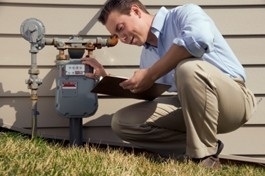4 Things First-Time Home Buyers Need to Know about Home Inspections
 RISMEDIA, April 21, 2010— A professional home inspection can not only provide a great education about the home’s systems, but also be a crucial tool in negotiating the most equitable price on the home, according to HouseMaster, one of the first and largest home inspection franchisors in North America.
RISMEDIA, April 21, 2010— A professional home inspection can not only provide a great education about the home’s systems, but also be a crucial tool in negotiating the most equitable price on the home, according to HouseMaster, one of the first and largest home inspection franchisors in North America.“Our experience and research shows that approximately 40% of resale homes have at least one defect that can cost a home buyer a minimum of $500 to repair,” said Kathleen Kuhn, President of HouseMaster.“A home inspection by a professional and qualified home inspector is an excellent tool to encourage home sellers to make repairs or make further price adjustments as a result of conditions noted in the inspection report.”
According to the National Association of Realtors (NAR), in 2009, a record 47% of homes sold were purchased by first-time buyers. Tax credit incentives from the federal government of up to $8,000 and historically low mortgage rates continue to attract first-time buyers to the market. A professional home inspection not only educates buyers on the condition of the home but can minimize costly surprises down the road. HouseMaster provides the following tips to ensure that first-time buyers make an educated decision when purchasing a home and get the best price possible.
1. Inspect the Inspector. Only hire a home inspector with an excellent reputation and credentials. Ask how long the company has been in business, ask about specific formal training and ongoing education the inspector has and verify the inspector carries professional liability insurance also known as “Errors & Omissions” (E&O). If the company doesn’t carry this insurance, it could indicate a poor track record or lack of experience.
2. Ask for a sample of a report. The credentials of the inspection company and the quality of the final inspection report will be important. A poorly prepared report without pictures or clear, concise details addressing all the various systems and accessible elements of the home is less likely to be taken seriously by a home seller.
3. Inspect ancillary systems. It’s hard for first-time home buyers to know what they need, so be sure to ask what additional services the company offers. If the home you are considering has a septic system for example, a professional home inspection company may offer septic system inspections or can coordinate that service for you. Generally, the company will offer you a multiple services discount as well as the added convenience of only having to attend one inspection appointment. Other common services offered by home inspectors are termite inspections, mold screening, water testing and radon testing.
4. Go along on the inspection. Ask the inspection company if they encourage buyers to tag along on the inspection. If the inspector discourages you from going along and asking questions, find another inspector. A home inspection is not simply a laundry list of what is wrong with the home. In addition to documenting issues and needed repairs that may exist, a professional home inspector will also show the new buyer how to operate the various systems in the home and provide tips on improving energy efficiency and maintaining the home in general. And being present during the inspection will make the final written report that much more meaningful.
RIS MEDIA 4/21/10


